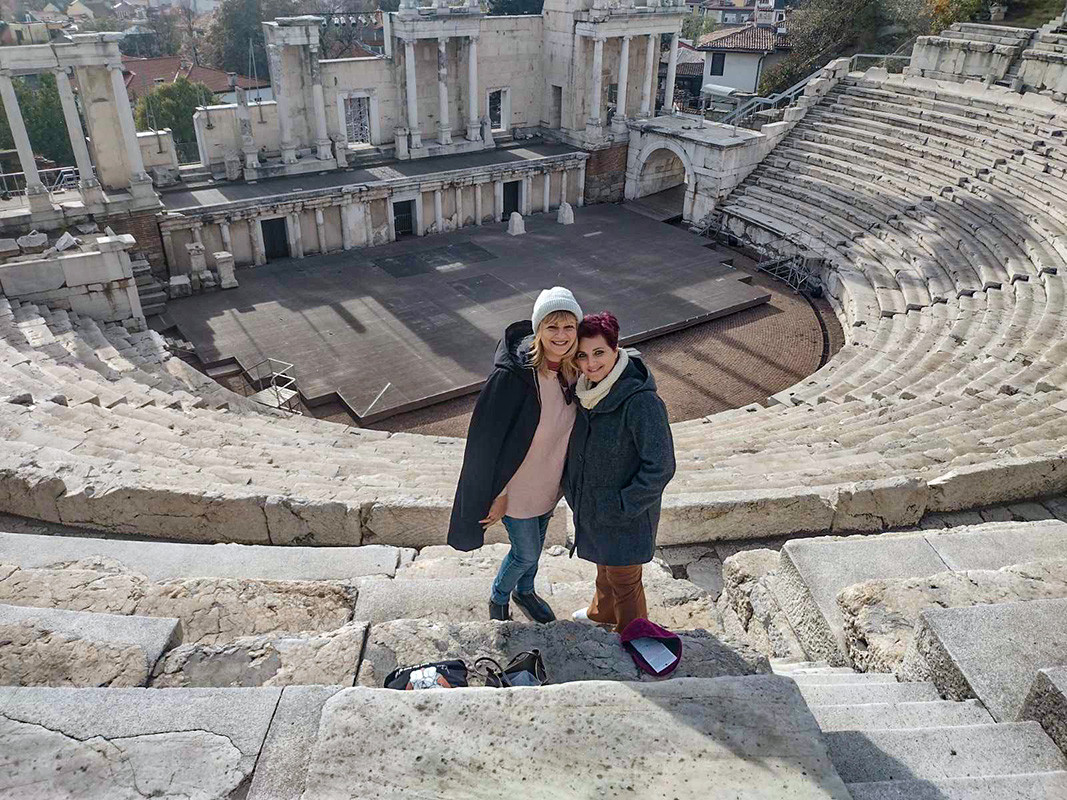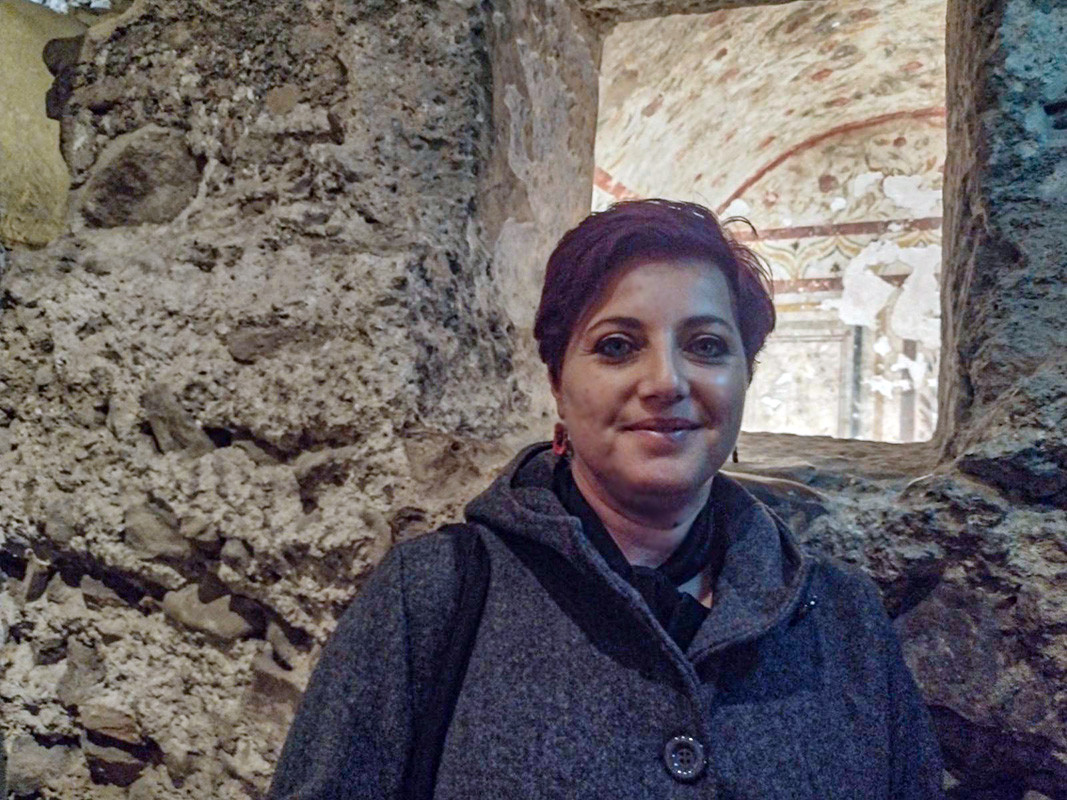"Bulgarians have a strong desire for national self-determination and a strong desire to go back in time to learn about their origins and to rebuild their identity, which was apparently forcibly taken from them during the long years of domination and influence of other nations." This is how our conversation with Isabella Marchetta starts in the studio of Radio Bulgaria. She is Italian, originally from Matera, and an archaeologist specializing in the Middle Ages. She knows the history of Bulgaria well and claims that we are moving along a forked path:
"On the one hand, you face the modern world under the influence of other peoples who are not looking for their identity, but strive for inclusion, who perceive themselves as citizens of the world. On the other hand, you are facing your roots. And in my capacity as an archaeologist, my meeting with people who want to know their own history so much and to restore the connection with their ancestors, greatly impresses me, as it is history that is my field of work," Isabella Marchetta says.
A few days ago, the Italian archaeologist visited Bulgaria in connection with the presentation of the documentary “Alcek and the Bulgars in Medieval Italy” by Rossita Lazarova-Sbaraglia and Radio Bulgaria’s Ivo Ivanov in the New Bulgarian University The film explores the Bulgarian footprint in the history of the Apennines and the settlement of Alcek, the alleged brother of Khan Asparukh - the founder of the Bulgarian state. The film's consultant is Isabella Marchetta herself, in her capacity as curator of an exhibition in the archaeological museum of Campobasso, containing sensational finds related to Bulgarian history.

Years ago, in a medieval necropolis in the nearby village of Campochiaro, archaeologists came across mysterious graves - warriors buried with all their war gear, along with their horses. It is claimed that the finds are of Proto-Bulgarian origin.
Watch the trailer of the documentary "Alcek and the Bulgars in Medieval Italy"

According to the Italian archaeologist, the local population had long-term contacts with communities of Bulgarian origin. And some traditions, especially in smaller villages, continue to be alive. For example, in Molise, bread that is very similar to Bulgarian ritual bread is kneaded. Similarities can also be seen in ancient folk costumes. There are also many words in the local dialects that can be compared to Bulgarian words. The film also presents something very important - we see how the connection with Bulgaria has been established over time through various legends and folk tales, passed down through the generations and being part of the local cultural heritage," Isabella Marchetta says. In the 7th century, Alcek settled in Southern Italy at the invitation of the Lombards, who at that time were at war with the Byzantines.

"It is claimed that they invited Alcek to Italy to protect their borders with Byzantium. At the time, there were no telephones and no Internet, but people knew each other well and maintained contacts. It was not by chance that the Lombards turned to Alcek for help. They knew that the proto-Bulgarians were very good warriors and that they would protect them, at a time when they did not have their own land. Nowadays, archaeological finds confirm the written sources related to this segment of history," Isabella Marchetta says in conclusion.
See also:
Many citizens of Sofia took advantage of the opportunity to see the Enina Apostle and the Argirov triod manuscripts which were exhibited today for two hours at the National Library "St. Cyril and Methodius". The event took place on the..
On the eve of St Athanasius' Day, one of the churches on the outskirts of Sofia is already preparing to welcome His Holiness the Metropolitan of Sofia and Bulgarian Patriarch Daniil , who this year will celebrate the Divine Liturgy in the church in the..
Atanasovden, also known as Midwinter in our folk calendar, is a holiday on which the Orthodox Church and our folklore pay tribute to St. Athanasius the Great – Archbishop of Alexandria and a fighter against Arianism (church heresy which rejects the..
Many citizens of Sofia took advantage of the opportunity to see the Enina Apostle and the Argirov triod manuscripts which were exhibited today for two..

+359 2 9336 661
